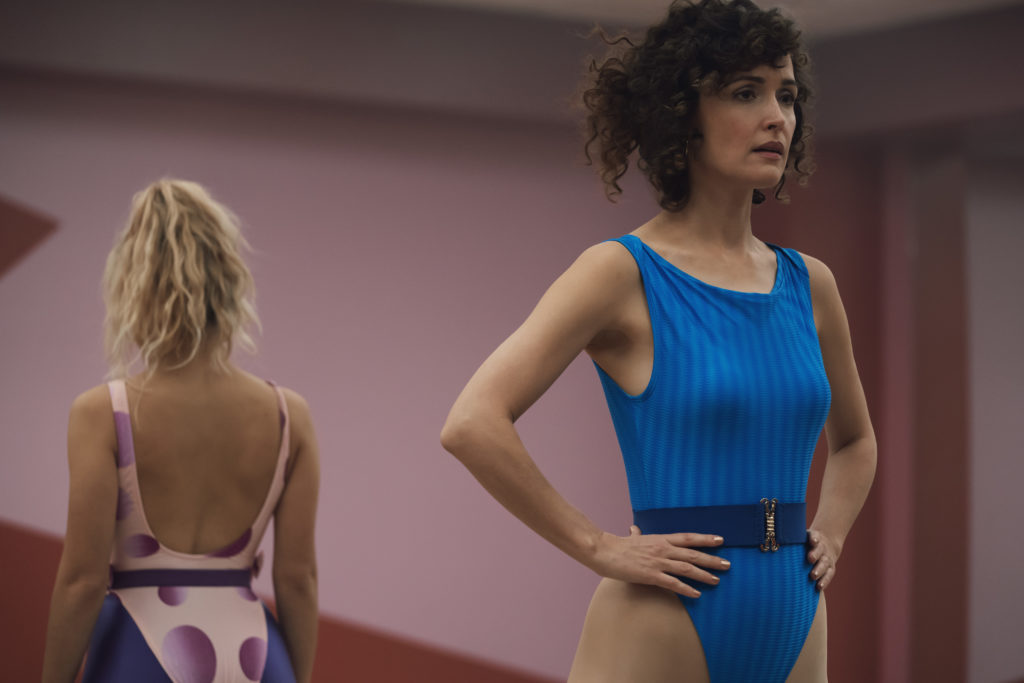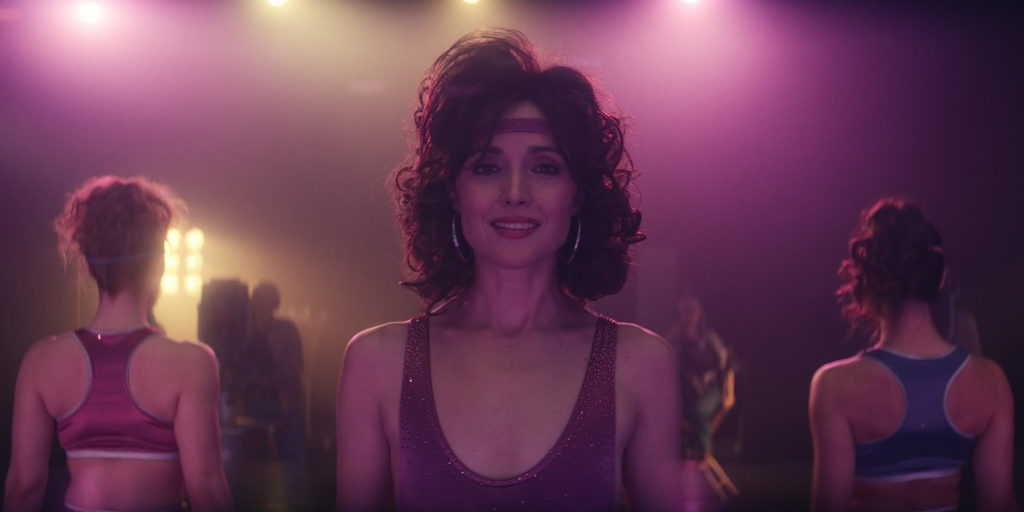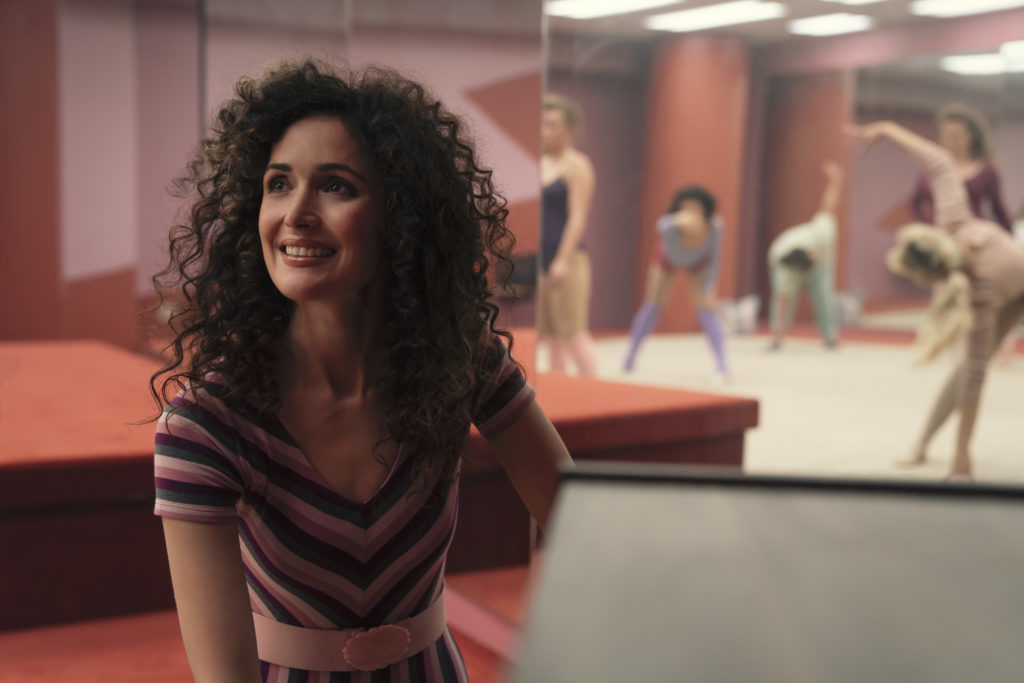Apple Tv+‘s ongoing commitment to female-led shows continues with their latest dramedy, Physical. Created by Annie Weisman—whose writing and producing credits include Desperate Housewives and Suburgatory—Physical follows housewife Sheila (played by Rose Byrne) as she struggles to discover her life’s purpose, all the while battling serious body-image issues, and a stifling, unfulfilling marriage. Set in the 1980s, Sheila finds herself suddenly pulled into the world of aerobics, quickly realizing it might be a means to her autonomy. Here, Byrne, reveals why aerobics is such a powerful force for Sheila and how she empathized with such a complex character.
What was the most challenging part of stepping into Sheila’s character?
“Finding Sheila’s voice as an aerobics coach, her conviction and her strength, that was very challenging to me. I started training early on for the physical side of it, but really harnessing that inner voice like any kind of legendary coach or any mentor that has that ability to capture and motivate you was difficult. That to me was a space that was very interesting to tap into, and of course exercising in that aerobics outfit was challenging—those outfits are tight!”
Become an S Insider
The latest in fashion, beauty, design, and arts & culture.

Sheila’s inner dialogue is a big part of the show. What compelled you most about her inner voice?
“She has an incredible inner voice that’s explored in the show. It’s her illness, which is so destructive and ruining her life and everything around her. It’s a sort of shameful place Sheila’s living in. But she manages to harness it and find this compelling, motivating, and inspirational way to fight her way out.
And Craig Gillespie—our incredible director of our pilot and producer—he brought such a visual tension to the addiction that was very specific, the real language, the urgency, and sense of desperation that she’s in. We meet her at a real breaking point with the illness, and obviously as we go on we watch her kind of claw her way out.”
Why do you think Sheila leans so deeply into aerobics and finds it a safe space to express herself?
“It’s not expected with aerobics. You think it’s a kind of a joke, and it’s retro now. But for Sheila, it really is a way to take that voice and to turn it into something else, which any good exercise guru has, or any kind of spiritual guru has, like Tony Robbins or Tracy Anderson.
It is a way to harness all of those feelings and things we hide or shove away. Particularly for women, anything about wanting too much or needing too much or feeling too much that we’re told is unattractive or not good or shameful, it’s a way to get that out for Sheila. We meet her at a breaking point, but discovering that as the chapters unfold was something that I subconsciously knew was happening, but was really only on set when you kind of experience it and figure it out.”

As the series progresses, it becomes clear that Sheila’s inner dialogue and criticism of other people is not so much rooted in maliciousness but more of a projection of how she’s feeling about herself. Did you find yourself empathizing with her in any way while you were reading the script?
“I did. You know, hurt people hurt people, right? She’s in isolation and she’s so in this illness and the opposite to isolation and being in pain is to connect. So as she slowly starts to connect to the character of Greta, played by Dierdre Friel, or Bunny, or even to Tyler or to John Breem, these characters start to filter in and that’s the only way out of something like that really. In a way, aerobics offers her a way out economically, but it can potentially turn into another addiction. So, to me, seeing those moments of Sheila connecting is very important to discover, but it was a very uncomfortable place to explore and something that is, like any great character in a novel or a show or a movie, they’re compromising but you want to root for them. There’s not many of those women who are really compromising that you still want to root for, because women are just held to a higher standard, and we have to appear to have it all and be on top of it, be okay, have a sense of humour and also look really good, while also achieving all of these things. So much of women’s destruction, I think, is inside rather than outside.”

Images courtesy of Apple TV.
Watch the full length trailer for Physical below and stream the show here.

